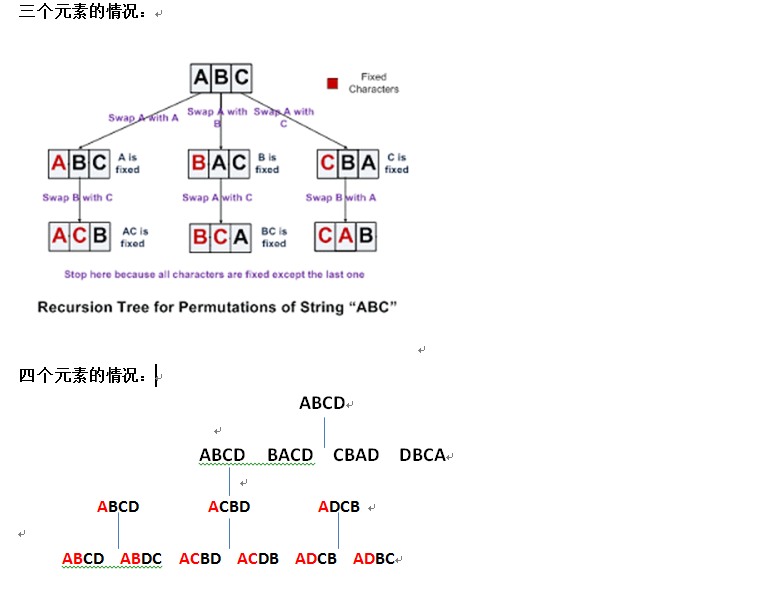Given a collection of distinct numbers, return all possible permutations.
For example,
[1,2,3] have the following permutations:
[1,2,3], [1,3,2], [2,1,3], [2,3,1], [3,1,2], and [3,2,1].
Subscribe to see which companies asked this question
思路:
一、全排列
where for the length of n, the permutations can be generated by
(1) Swap the 1st element with all the elements, including itself.
(2) Then the 1st element is fixed, go to the next element.
(3) Until the last element is fixed. Output.
It's more clear in the figure above. The key point is to make the big problem into smaller problem, here is how to convert the length n permutation into length n-1 permutation problem.
代码:
class Solution {
public:
void perm(vector<int> num,int k,int n, vector<vector<int> > &res){
if (k==n){
res.push_back(num);
}else{
for (int i=k;i<=n;i++){
int tmp = num[k];
num[k]=num[i];
num[i]=tmp;
perm(num,k+1,n,res);
tmp = num[k];
num[k]=num[i];
num[i]=tmp;
}
}
}
vector<vector<int> > permute(vector<int> &num) {
// Start typing your C/C++ solution below
// DO NOT write int main() function
vector<vector<int> > res;
perm(num,0,(num.size()-1),res);
return res;
}
};










 本文介绍了一种生成所有可能的全排列的方法。通过递归交换元素位置实现,将大问题拆解为小问题来求解。具体步骤包括:1) 交换首个元素与其他所有元素;2) 固定首个元素后进入下一层递归;3) 直至最后一个元素固定并输出结果。
本文介绍了一种生成所有可能的全排列的方法。通过递归交换元素位置实现,将大问题拆解为小问题来求解。具体步骤包括:1) 交换首个元素与其他所有元素;2) 固定首个元素后进入下一层递归;3) 直至最后一个元素固定并输出结果。


















 被折叠的 条评论
为什么被折叠?
被折叠的 条评论
为什么被折叠?








